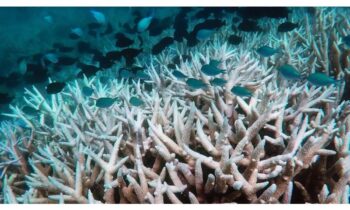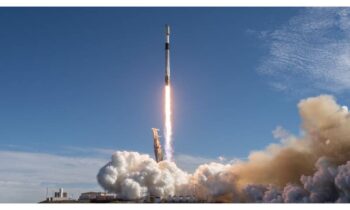
A significant Alaskan ice field’s glaciers are melting twice as quickly as they were more than ten years ago, and scientists are calling the pace of ice loss “incredibly worrying.”
Scientists at Newcastle University in the United Kingdom conducted the research, which was published on Tuesday in Nature Communications. They found that the amount of ice on Juneau Icefield has significantly dropped since 2010 when compared to decades earlier.
Juneau Icefield, the fifth-largest ice field in North America, is located 2,000 feet north of Juneau and stretches through the British Columbian border.
Three times during which there were notable changes in ice volume were identified by researchers using historical data.
The study found that the glacier volume loss at the Juneau Icefield stayed constant between 1770 and 1979, ranging from 0.65 to 1.01 kilometers cubed annually. The second era, spanning from 1979 to 2010, witnessed a rise in the annual ice volume loss to 3.08-3.72 kilometers cubed.
Researchers were alarmed to learn that the Juneau Icefield’s glacier volume loss accelerated to 5.91 kilometers cubed between 2010 and 2020.
According to Dr. Bethan Davies, a lecturer at Newcastle University and study leader, “It’s incredibly worrying that our research found a rapid acceleration since the early 21st century in the rate of glacier loss across the Juneau Icefield,” in Nature Tuesday.
Davies outlined the reasons the area is vulnerable to faster ice loss due to climate change.
“Alaskan ice fields — which are predominantly flat, plateau ice fields — are particularly vulnerable to accelerated melt as the climate warms since ice loss happens across the whole surface, meaning a much greater area is affected,” Davies stated.
According to the study, 108 of the glaciers in Juneau Icefield have entirely vanished since 1770, and mapping conducted in 2019 revealed that every glacier in the area has reduced.
“As glacier thinning on the Juneau plateau continues and ice retreats to lower levels and warmer air, the feedback processes this sets in motion is likely to prevent future glacier regrowth,” Davies said, adding that this could push glaciers “beyond a tipping point into irreversible recession.”



